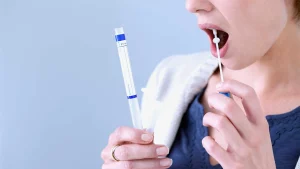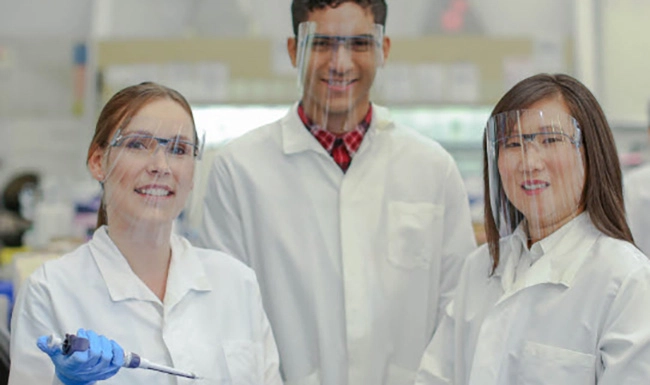You send your child to school with the expectation that they will be safe and secure. However, in recent years, numerous incidents of violence, drug use, and other safety concerns have left parents uneasy about their children’s well-being at school. As a result, schools are implementing new safety measures to protect students from potential harm.
One such measure is drug testing for guardian visitors. This approach aims to prevent adults under the influence of drugs or alcohol from entering school grounds and potentially posing a threat to students. While this solution seems reasonable, it raises concerns about invasion of privacy and fairness. In this article, we will examine both sides of the argument surrounding drug testing for school guardian visitors and explore alternative approaches to ensure student safety without compromising individual rights.
The Need for Increased Safety Measures in Schools
With the increasing prevalence of violence and drug use, it is essential to implement additional security measures in educational institutions. Schools must prioritize student safety, including creating a secure environment that minimizes risks associated with drugs and other dangerous activities. The responsibility to protect children in schools extends beyond just teachers and staff members; parents and guardians also have a vital role to play.
Parents must recognize their responsibility to ensure the safety of all students when they visit school premises. They should adhere to all school guidelines, including checking into the office before entering classrooms or other areas where children are present. However, schools can take additional measures to safeguard their students, such as implementing a 12 panel mouth swab drug test for guardian visitors.
The Pros and Cons of Drug Testing for Guardian Visitors
As you walk through the gates of your child’s educational sanctuary, you may wonder if implementing a system to ensure the purity of the fruit in the garden is worth sacrificing the privacy of those who come to see it. Drug testing for guardian visitors has ethical implications that need to be considered. On the one hand, parents have a responsibility to keep their children safe, and drug-testing visitors could provide an added layer of security. However, on the other hand, this invasive measure could be seen as a violation of privacy and trust.
There are pros and cons to drug testing for guardian visitors in schools. Supporters argue that it could prevent harm from coming to students by identifying visitors who may be under the influence of drugs or alcohol before they enter campus. Opponents argue that this type of screening is unnecessary and infringes on civil liberties. It’s important for school officials and parents alike to carefully weigh these arguments before deciding whether drug testing should be implemented in their schools.

Addressing Concerns of Invasion of Privacy
You may be wondering about privacy invasion for individuals visiting educational institutions. Balancing privacy and security is a delicate task, especially in schools where the safety of students is paramount. While drug testing for guardian visitors can help prevent drug-related incidents on school grounds, some argue that it violates individual rights to privacy. However, it’s important to note that drug testing policies are not uncommon in various industries, including sports and transportation.
To address concerns of invasion of privacy, schools can implement strict protocols to protect visitors’ personal information. For instance, test results should remain confidential and only accessible by authorized personnel. Moreover, schools should ensure that reliable third-party providers conduct tests properly and fairly. It’s also necessary to consider the impact of drug testing on school culture from student and staff perspectives. While some may feel safer with stricter measures in place, others may perceive it as an infringement on their civil liberties. Finding a middle ground between ensuring school safety and respecting individual rights requires careful consideration and open communication among all parties involved.
As we examine the fairness and effectiveness of drug testing for guardian visitors in schools, let’s consider both sides of the argument while prioritizing student safety above all else.
Examining the Fairness and Effectiveness of Drug Testing
Just like a chef must taste every ingredient to ensure the perfect balance of flavors, it’s important for educational institutions to carefully examine the effectiveness and fairness of their policies regarding visitors’ safety. In the case of drug testing for guardian visitors, many ethical implications arise due to the potential invasion of privacy. Legal considerations also come into play as regulations vary by state and may conflict with constitutional rights.
To evoke emotion in the audience, consider these points:
– Is it fair to subject all guardian visitors to drug testing when only a small percentage may be using drugs?
– How will this policy affect low-income families who cannot afford regular drug testing?
– Could this policy create a culture of distrust and stigma toward certain groups?
While ensuring student safety is essential, alternative approaches can be taken without resorting to invasive measures.
Alternative Approaches to Ensure Student Safety
One approach to keep students safe is implementing a system that requires all visitors to sign in and wear identification badges while on campus. This method would help school officials track who enters the premises, making identifying potential threats or suspicious behavior easier. Additionally, visitor screening could be conducted by trained personnel at the entrance, using behavioral interventions like questioning techniques or observation skills to detect any possible intent of harm.
Another alternative approach for ensuring student safety is surveillance cameras and metal detectors. These tools can be used with visitor screening to enhance school security measures. The presence of security cameras can deter individuals from engaging in harmful activity, while metal detectors can help prevent weapons from being brought onto school grounds. However, it’s important to note that these measures have limitations and may not guarantee complete safety. Therefore, incorporating multiple approaches such as those mentioned above may provide a more comprehensive solution for protecting kids in school.
Conclusion
Congratulations! You have reached the end of this article on drug testing for school guardian visitors. As you reflect on the pros and cons of this approach, you may wonder whether it is truly necessary to protect our children from potential harm. However, just as a shield protects a warrior in battle, these safety measures protect students from dangers that could impact their physical and emotional well-being.
Symbolically speaking, drug testing is like an armor that fortifies the school community against harmful substances and behaviors. While some argue that it infringes upon personal liberties or unfairly targets certain individuals, others believe that it is a proactive measure to create a safer learning environment for all. Ultimately, the decision to implement drug testing for guardian visitors should be based on careful consideration of its effectiveness, fairness, and impact on privacy.
As we strive to protect our children in school, remember that every effort counts towards creating a culture of safety and support. Whether through drug testing or other means of prevention and intervention, we can work together to ensure that our schools are places where students can learn, grow, and thrive without fear or harm. Thank you for taking the time to read this article and consider its implications for your views on student safety.
You May Also Like:



